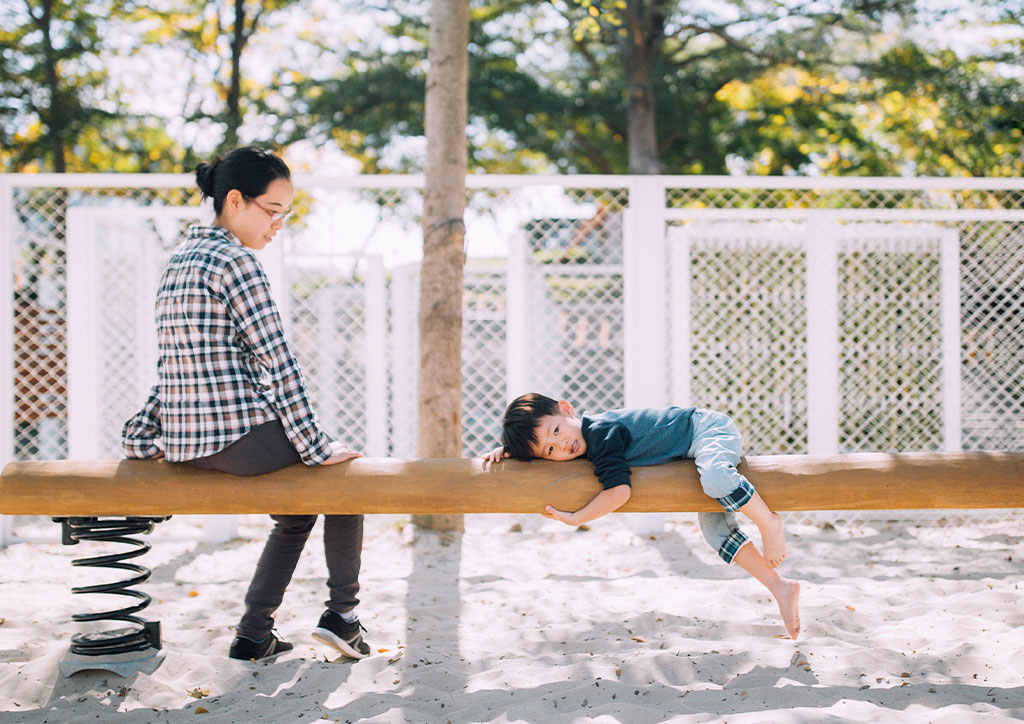Kids
What is a Helicopter Parent and How Not To Be One
There’s a borderline between being a helicopter parent and being protective of our kids.
There’s nothing wrong with being protective of our kids. But there’s a fine line when it’s too much and we’re turning into a helicopter parent. But it’s hard to draw that line especially when there are situations that we need to gauge. Sometimes, being unfamiliar with the situation makes us extremely anxious to the point the thoughts get irrational. Not to worry, however, here’s how to find out if you’re being a helicopter parent or not.
What is being a Helicopter Parent?
Being involved with what our kids do is something we always do as parents. However, if that involvement starts to overwhelm our kids’ abilities to make decisions, it’s time to step back. Sometimes, rationalizing that we’re protecting our kids can bury the fact that our kids are individuals separate from us. This normally appears when kids are too frozen to make a decision and they keep looking to us to make the decision for them. While it’s nice to have our kids depend on us, it also prevents us from teaching them responsibility and accountability. Something they’ll need when they grow up.

How Do We Know It’s Affecting Our Kids?
One particular sign kids from helicopter parents have is a phenomenon known as Analysis Paralysis. It’s when kids start overanalyzing and even taking into account the parent’s feelings towards their decision to the point they can’t make the decision themselves. When things go awry, it often results in nervous breakdowns or they’re not as resilient as other kids. They also show lower levels of self-esteem because they’re highly dependent on parents to make the “correct decision for them”.
Unfortunately, behavioral and mental disorders can arise from helicopter parenting. Separation anxiety is one of them. But the worst one is Dependent Personality Disorder wherein they rely heavily on others for their physical and emotional needs to the point the other person can feel suffocated.
How Not To Be A Helicopter Parent
Half the battle is finding out where the line for helicopter parenting is. The next part is maintaining that line. Some parents may find it disturbing what appears to be a “lack of involvement”. But, the long run is that our kids eventually develop their own person. Being mindful of when we’re forcing our kids to accept our decisions is a good start. Our kids will normally show their discomfort through their body language. Their voices reduce into a murmur, they freeze up, nodding rapidly, or even inching towards the door as if to escape.

Kids will eventually need to fly on their own
The reality is that we’re not getting any younger. As much as we want to always be there for our kids, we can’t. Humans have a lifespan of around 80 years, assuming we’re still lucid. Some make it to 100 years but aren’t as aware as they used to be. Thus, sometimes — the best way is to slowly let go and know where the boundaries are. Although the old adage that “parents know best” still holds water, it’s not something we should constantly reinforce on our kids especially when they’re older.
Looking for more parenting tips? Here’s more!
5 Parenting Lessons We Can Learn from Encanto
Troy Montero and Aubrey Miles On Parenting Across the Lifespan
Filipino Tradition and Gentle Parenting According to a Child Development Coach





